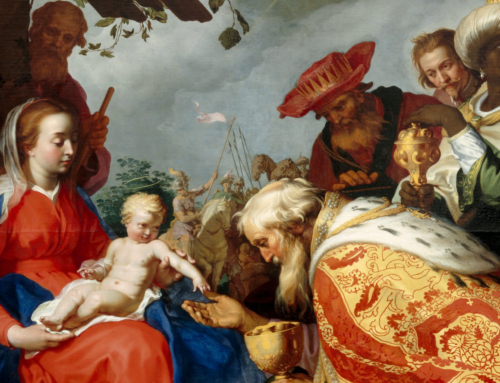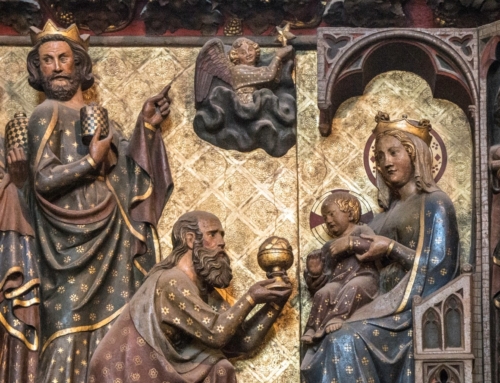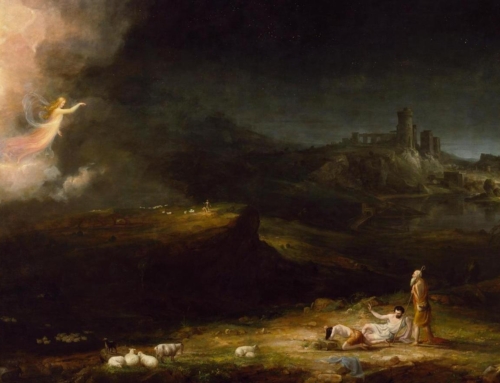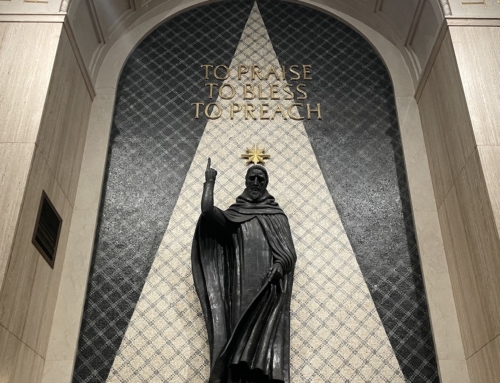Christmas Day has passed, the Magi have brought their gifts, and, in a few days, we will celebrate Jesus’ baptism. This is a time of hiddenness: after St. Luke’s recap of the finding of the boy Jesus in the temple, there is no Gospel account of Jesus’ life until his baptism. According to Luke, Jesus was about thirty years old when he encountered John the Baptist at the Jordan, which means that the nearly two decades of Jesus’ life leading up to the baptism are hidden in obscurity.
Far from being a reason to ignore this period of Jesus’ life, this hiddenness is itself a special mystery to ponder. For the reason that these years were not recorded is surely that they were a time of ordinariness, a time of quiet labor before the flurry of activity that marked Jesus’ last three years. And these years of humble simplicity in Nazareth reveal in a very special way the depths of God’s union with us.
For most of us, the ordinary plodding forward of daily life is perhaps the greatest challenge that we are given. From time to time we are all presented with occasions for a special heroism in which we are invited to accomplish some great task or other. But most of the time, we are invited to accomplish a different kind of feat—the task of following God’s will in the little actions that make up our daily routines. And this call, because it continues day in and day out, in good times and in bad, is where we are perhaps most sorely tried.
The people of first-century Nazareth were living this daily grind no less than you and I are today. They were working for their families, purchasing food, feeding their children, arguing with each other, sweeping their floors, visiting their grandparents, getting sick, forgetting to say their prayers, scolding their children, and trying to get a good night’s rest. And sometimes in the midst of it all, some of them would surely ponder the age-old question: “Where is God in all of this?”
But of course, He was right there. And He wasn’t just “there” in the sense of looking down upon them, watching them live their messy, toilsome lives. He was there in their very town, living through the same daily routines that they were. But they didn’t know it, because He was hidden. He had clothed himself in our human nature and was sharing their ordinary life.
We are in a very similar situation today. In our own daily grind, it can be difficult to recognize God’s presence, and easy to wonder where He is in it all. However, just as with the people of Nazareth, He is right here. In some manner, He’s even more widely present to us than He was to them. Jesus was proximately close to his neighbors in Nazareth, but because of our baptism into the Body of Christ, Jesus is within us.
Again, He is hidden—but He is hidden inside us and inside those Christians around us. Such is the intimate bond of grace that unites Christ the Head and us, the members of His mystical Body. In us and in all the faithful, He lives and breathes. Any virtuous action that we do must be traced back to Christ. When we sweep the floor, in some way the Son is sweeping the floor in us. When we sit down to eat dinner with our family, the Son is sitting down to eat dinner with our family. When a fellow Christian says good morning to us, the Son is saying good morning to us. For God has united to Himself not just a particular human nature, but—in a different, mystical way—all human persons who believe in and are baptized into the Son.
This Sunday, we will celebrate Jesus’ baptism. And thence will begin the time of Jesus’ public ministry, as he works miracles and teaches in the synagogues. From time to time we will experience Jesus’ mighty works and words in our lives, and He will even invite us to participate in some of them. But, most of the time, we will remain with the hidden Jesus, in His quiet life in Nazareth, learning to love the Father one little task at a time.
✠
Image: Jan Vermeer, Milkmaid







